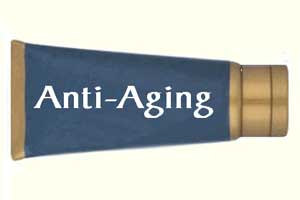- Home
- Editorial
- News
- Practice Guidelines
- Anesthesiology Guidelines
- Cancer Guidelines
- Cardiac Sciences Guidelines
- Critical Care Guidelines
- Dentistry Guidelines
- Dermatology Guidelines
- Diabetes and Endo Guidelines
- Diagnostics Guidelines
- ENT Guidelines
- Featured Practice Guidelines
- Gastroenterology Guidelines
- Geriatrics Guidelines
- Medicine Guidelines
- Nephrology Guidelines
- Neurosciences Guidelines
- Obs and Gynae Guidelines
- Ophthalmology Guidelines
- Orthopaedics Guidelines
- Paediatrics Guidelines
- Psychiatry Guidelines
- Pulmonology Guidelines
- Radiology Guidelines
- Surgery Guidelines
- Urology Guidelines
Key target for potential anti ageing products discovered

Researchers have found that the activity of a key metabolic enzyme in human skin cells declines with age, thereby providing experts a target countering which can lead to anti-ageing treatments and cosmetic products.
"Our study shows, for the first time, in human skin that with increasing age there is a specific decrease in the activity of a key metabolic enzyme found in the batteries of the skin cells," said lead researcher Mark Birch-Machin, professor at Newcastle University in England.
"This enzyme is the hinge between the two important ways of making energy in our cells and a decrease in its activity contributes to decreased bio-energy in ageing skin," Birch-Machin noted.
The study, published online in the Journal of Investigative Dermatology, found that the activity of mitochondrial complex II significantly decreases in older skin.
"Our research means that we now have a specific biomarker, or a target, for developing and screening anti ageing treatments and cosmetic creams that may counter this decline in bio-energy," Birch-Machin pointed out.
"There is now a possibility of finding anti-ageing treatments which can be tailored to differently aged and differently pigmented skin, and with the additional possibility to address the ageing process elsewhere in our bodies," Birch-Machin noted.
The researchers believe that the findings may also lead to a greater understanding of how other organs in the body age, which could pave the way for drug developments in a number of age-related diseases, including cancer.
For the study, complex II activity was measured in 27 donors, from aged six to 72 years. Samples were taken from a sun-protected area of skin to determine if there was a difference in activity with increasing age.
It was found that complex II activity significantly declined with age.
"Our study shows, for the first time, in human skin that with increasing age there is a specific decrease in the activity of a key metabolic enzyme found in the batteries of the skin cells," said lead researcher Mark Birch-Machin, professor at Newcastle University in England.
"This enzyme is the hinge between the two important ways of making energy in our cells and a decrease in its activity contributes to decreased bio-energy in ageing skin," Birch-Machin noted.
The study, published online in the Journal of Investigative Dermatology, found that the activity of mitochondrial complex II significantly decreases in older skin.
"Our research means that we now have a specific biomarker, or a target, for developing and screening anti ageing treatments and cosmetic creams that may counter this decline in bio-energy," Birch-Machin pointed out.
"There is now a possibility of finding anti-ageing treatments which can be tailored to differently aged and differently pigmented skin, and with the additional possibility to address the ageing process elsewhere in our bodies," Birch-Machin noted.
The researchers believe that the findings may also lead to a greater understanding of how other organs in the body age, which could pave the way for drug developments in a number of age-related diseases, including cancer.
For the study, complex II activity was measured in 27 donors, from aged six to 72 years. Samples were taken from a sun-protected area of skin to determine if there was a difference in activity with increasing age.
It was found that complex II activity significantly declined with age.
Next Story
NO DATA FOUND

Disclaimer: This site is primarily intended for healthcare professionals. Any content/information on this website does not replace the advice of medical and/or health professionals and should not be construed as medical/diagnostic advice/endorsement or prescription. Use of this site is subject to our terms of use, privacy policy, advertisement policy. © 2020 Minerva Medical Treatment Pvt Ltd